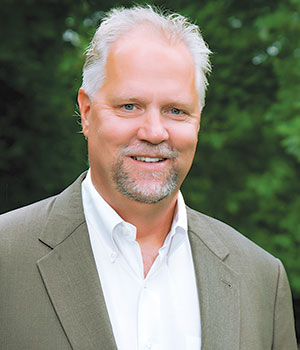
There is actually a website based on the old joke about the meeting that should have been an email. There is even a coffee mug.
How many of us have been in such a gathering? How often might be the better question.
The average organization probably meets too much for its own good. Most organizations meet too often, meet for the wrong reasons and may even meet for meeting’s sake: board meetings, committee meeting, ELT meetings, division meetings, department meetings, sales meetings, marketing meetings, supervisory meetings, finance meetings, special meetings and the occasional meeting about meetings.
Meetings are expensive. Time spent at conference tables – whether measured in internal costs or billable rates – may be a luxury we can no longer afford, at least the way we have been used to.
To be clear, I am not advocating we replace all meetings with emails. That is a foolish and wrong-minded notion. Because while the punchline about the meeting that could have been an email is as true as it is funny, the line about the email that should have been a meeting is only true. There is usually nothing funny about an email gone south.
Meetings are as valuable and necessary now as ever before. For this reason they should be treated with better care, discipline and discernment. We have a best practices meeting model that has worked for our clients over the years. Basically it goes something like this:
Meetings should:
- Have a clear and stated purpose that is understood by all parties in advance
- Be prepared for by the organizer(s), including materials to attendees in advance
- Be run on time, meaning starting and stopping as advertised
- Leave a written record on summary points and takeaway assignments
- Start where they left off if a regular meeting / pulling the golden thread all the way through
Conversely, meetings should not:
- Be ambiguous or necessarily vague regarding the whys or wherefores
- Lack preliminary due diligence and institutional readiness
- Start late and/or finish late
- Disappear like Brigadoon for a hundred years with no paper trail
- Cold start from a blank page neglecting the storyline from past meetings
I learned some valuable lessons a couple decades back that have stayed with me from work I did in the high-tech sector with top tier donors who held leadership positions at Intel.
- Meetings must be earned. One bad meeting and you might not get the next one.
- The value of meeting is viewed through a cost-benefit lens.
- Organizers who arrive late may find their attendees are no longer there, excused by protocol to leave.
- Attendees of a meeting that runs late are also allowed by protocol to get up and walk out.
- Meetings failing to pull the golden thread that knits talk to action cease to happen.
Maybe your team already plays by these rules. If so, congratulations, you are ahead of the curve. My guess is that your meetings are impactful and dynamic. If, on the other hand, you haven’t yet adopted these guidelines, do be warned that the transition can be decidedly bumpy. Organizers of larger meetings tend to have corner suites and the change will often be a challenge.
One CEO we worked with – who led a successful effort to change his company’s meeting culture – inevitably experienced a temporary albeit profound sense of buyer’s remorse. Imagine walking into an all staff meeting to find no one there, as in no one.
Admittedly, the CEO was 15 minutes late to his own meeting, and the ink on the new meeting protocol that bore both his signature and fingerprints was still wet.
“Is this really how it is supposed to work?” he asked me on the phone that very afternoon. “Because it caught me by surprise, and I am not sure I am really ready for this.”
“You were probably ready,” I assured him. “You just weren’t on time.”
Leaders lead, which is what he ultimately did. He single-handedly transformed his organization’s meeting culture, and thereby the effectiveness of the organization itself, by adhering to his new meeting protocol, which secured all reporting lines below him with dramatic flair, and caught the attention of those above him as well.
“I never would have guessed it could happen so quick,” he later reflected. “It became a great opportunity to lead our people in a direction they were ready to go.”
Not all transformations happen so fast. Many have learning curves that are more like the proverbial long and winding road. But progress is still palpable at each twist and turn because meeting impacts are exponential, resulting in waves of energy that can become the stuff of water cooler discussions.
And there is no email that will ever replace those.
Mike Westby is president and CEO of Westby Associates, Inc., which provides customized consultant/practitioner services to nonprofit and public service agencies, assisting them to think and act strategically. Mike can be reached at mtwestby@westbyassociates.com.






